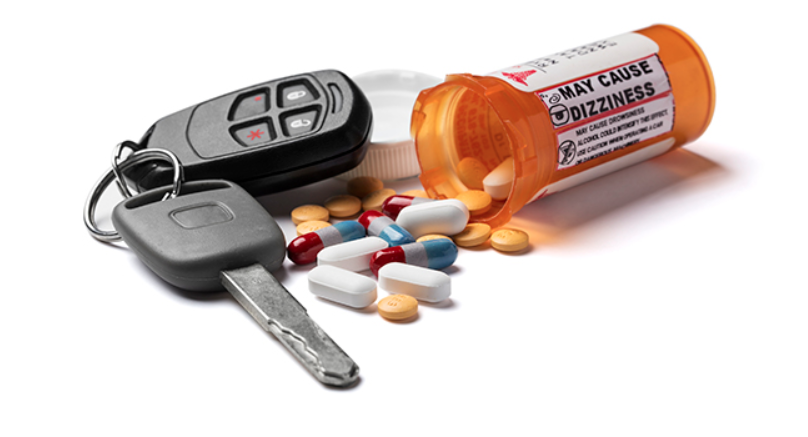Nearly half of older adults use seven or more drugs while remaining active drivers, says new research by the AAA Foundation for Traffic Safety.
In addition, nearly 20 percent of drivers 65 years and older use potentially inappropriate medications (PIMs) the American Geriatrics Society say should be avoided because they have limited therapeutic benefits, pose excess harm or both.
— an announcement from AAA Northeast and the American Automobile Association
PIMs, known to cause impairing effects such as blurred vision, confusion, fatigue, or incoordination, can increase crash risk by up to 300 percent.
“There’s a growing population of older drivers who don’t realize the impact prescriptions may have on their driving,” said Fran Mayko, AAA Northeast spokeswoman. “As Baby Boomers come of age, it’s important they realize the more medications they take, the more likely they’re using one that can potentially cause driving impairment.”
This newest Foundation research is part of a comprehensive, multi-year AAA LongROAD (Longitudinal Research on Aging Drivers) study on the driving behaviors of nearly 3,000 senior adults.
Researchers from the AAA Foundation, Columbia University and University of California-San Diego evaluated medical reports from those drivers to better understand driving patterns, risks and trends so they may develop effective countermeasures to keep older drivers safe on roads longer.
The most common medications older drivers use are cardiovascular prescriptions to treat heart and blood vessel conditions and central nervous system prescriptions such as pain meds, stimulants and anti-anxiety drugs that treat the nervous system, researchers found.
Previous LongROAD research found fewer than 18 percent of older drivers report ever receiving warnings from their healthcare providers about how their prescriptions impact driving safety.
This is concerning, Mayko said, because in 2017, more than 20,000 older drivers were involved in crashes in Connecticut, including over 2,700 who were injured and 35 who were killed.
“It’s not just alcohol and illegal drugs that impair driving,” she said. “Legally prescribed or over-the-counter medications taken alone or in combination with each other also affects your safety on roadways.”
What’s also concerning, Mayko said, is more than a third of older adults say they’re prescribed medications by more than one doctor, which may create situations where doctors and patients overlook ways to determine how various prescriptions interact.
- “In many cases, adults fail to tell their physicians about their prescription histories, share medical histories with healthcare providers, or ask about potential side effects or interactions that can affect driving,” she said.
What You Can Do
Considering the high number of medications used by older drivers, AAA urges older adults and their families to be vigilant in understanding the types of medications prescribed to them and have a strong grasp on any potential impairing side effects before getting behind the wheel.
Drivers should:
- Come Prepared: Write down any vitamins, supplements and prescribed or over-the-counter medications you take, and bring that list with you to every medical appointment.
- Ask Questions: Share that medications list with your healthcare providers at each appointment, and ask about potential side effects or interactions that could affect your driving.
- Discuss Alternatives: Risks can often be reduced by taking alternative medications, changing the doses or the timing of the doses to avoid conflicts with safe driving.
Online Tools
To help older drivers understand the interactions and common side effects of prescription drugs, over-the-counter medications, and herbal supplements, AAA has developed a free online tool, called Roadwise Rx.
This program flags interactions between medications that may impact driving safety and offers print-out capabilities, so you can discuss results with physicians or pharmacists. Visit www.roadwiseRX.aaa.com.
Drivers seeking additional ways to stay mobile or looking to drive less often because of medications can also find resources for alternative transportation at SeniorDriving.AAA.com.
To Learn More
AAA Foundation for Traffic Safety LongROAD Research Briefs:
—Medication Use in Older Adult Drivers
—Prevalence of Potentially Inappropriate Medication Use in Older Drivers

